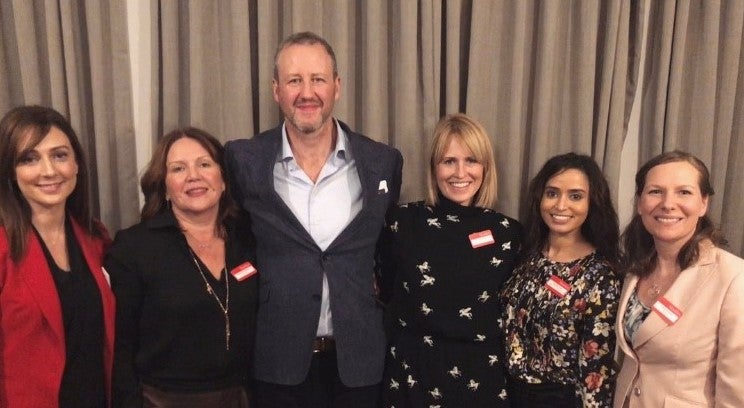
In November 2018, ACC Europe members and guests gathered at The Allbright in London for a Straight Talk on Gender Parity and Diversity. Kindly hosted by Skadden, Arps, Slate, Meagher & Flom UK LLP (Skadden), the focus for the panel discussion was based on a report written by Skadden in collaboration with a leading campaign organization, Women@TheTable, which had been presented to the United Nations in 2018. The report, Best Practices for Election of Members to International & Regional Treaty Bodies, examines best practices for nominating and selecting individuals from the perspectives of diversity and inclusion, with a specific focus on gender diversity at the highest governance levels.
The Allbright, Britain’s first female-only private members’ club, provided a fitting backdrop in which to discuss the report’s conclusions and to consider how best the recommendations could be implemented in today’s commercial environment. In addition to the report’s three co-authors from Skadden, Elizabeth Robertson (partner), James Anderson (partner) and Kathlene Burke (associate), panelists included Emilie Jones (senior vice president at CAA-GBG) and Ruth Murphy (legal director in life and product, enterprise at BT). The panel was arranged and moderated by Radhika Rani (senior legal counsel, Hewlett Packard Enterprise) who is a Skadden alumna.
Kathlene Burke gave a concise summary of the report’s findings, which provided a springboard for the ensuing discussion on how gender and diversity parity could be gained within firms and companies, and notably in senior positions. It was noted that in some countries, progress was far quicker than in others. James Anderson noted that in 2017, the firm had received over 100 different requests from clients to view the firm’s gender policy that clearly demonstrated that people were more aware of gender diversity. Furthermore, an estimated US$3.3 billion in asset management funds were invested in diversity funds representing a huge growth in recent years.
The panel keenly debated whether recognized quotas would provide the solution to gender parity at senior levels such as partner or board. One panelist noted “quotas abhor me” – giving rise to the question as to how one would feel if appointed only to fulfill a quota. However, one participant cited an example of the Northern Ireland police force successfully diversifying through a hiring quota for non-Catholic officers. In the participant’s view this relatively quick diversification would not have been achieved without quotas, moreover it vastly improved public relations very quickly. A show of hands from the audience indicated that a majority of those present would be in favor of quotas. However, one attendee reminded us that in some jurisdictions where quotas were in place, some persons ended up being promoted precisely due to, for example, race, gender, or disability, and not because of merit. Others concurred that quotas were not a perfect solution but recognized that they were a good way to kick-start and quickly achieve diversity at senior levels, and that some of the potential damage could be mitigated if there was a reasonable time limitation. One panelist was optimistic that Gen Z would not face such issues. This was supported by the observation that the home environment is hugely influential; if you have parity in the home that will translate into the workplace. As the audience nodded in agreement, some were quickly bought back to the current climate with the observation that in the United Kingdom the FTSE 350 companies had made fewer female appointments at board level in 2017 than in previous years. Notwithstanding the initiatives in many companies, such as ensuring panel interviews, tracking of diversity and gender data, specific tracks for spotting diverse early talent, or more specific in-company support groups, it was clear there remains much work to be done before gender parity and diversity would be achieved across the board and at all levels.
This was a very successful and interactive evening. Wait to hear more from Radhika Rani and the Skadden team, who together are planning on a sequel to this event. Watch this space.




